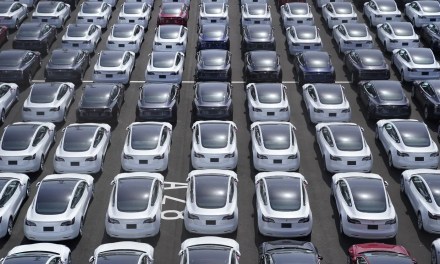In yet another regulatory scrutiny for Tesla, the National Highway Traffic Safety Administration (NHTSA) has launched an investigation into the 2023 model year Model 3 and Model Y vehicles following reports of steering issues. The investigation comes after a dozen complaints from drivers who experienced difficulties in steering their vehicles, and in some cases, a complete loss of power steering.
According to the NHTSA, five reports mentioned an inability to steer the vehicle, while seven others cited a loss of power steering, leading to increased effort in controlling the car. To assess the severity and scope of the problem, the agency has initiated a preliminary evaluation (PE) to examine the frequency and manufacturing processes associated with this condition.
While there have been no reported deaths or injuries related to these incidents, one reported case resulted in a crash or fire. Approximately 280,000 vehicles are within the scope of this investigation, and depending on its findings, it could lead to a recall.
This is not the first time Tesla’s safety issues have come under NHTSA’s scrutiny. In March, a separate investigation was launched after receiving reports of steering wheels detaching from Model Y vehicles while on the road. The company’s safety practices have also caught the attention of the Department of Justice (DOJ). In January, Tesla confirmed that the DOJ had requested documents related to Tesla’s Autopilot and Full Self-Driving features, indicating an investigation into the company’s autonomous driving technologies.
Tesla, known for its high-profile CEO Elon Musk and innovative electric vehicles, has faced several recalls in the past due to safety concerns. Last month, the company issued a voluntary recall for over 1,300 Model S, X, and Y vehicles manufactured this year due to misaligned cameras. The misalignment had the potential to disable critical active safety features, such as automatic emergency braking, forward collision warning, and lane-keeping assist, without alerting the driver.
As of now, Tesla has not commented on the latest NHTSA investigation, and it’s worth noting that the company does not have a formal communications department to provide an immediate response.
Conclusion
For Tesla, these investigations represent a significant challenge, considering the company’s aim to lead the electric vehicle market and push the boundaries of autonomous driving technology. The outcome of these investigations will likely determine the company’s approach to safety measures, product recalls, and its overall reputation in the automotive industry. In the pursuit of innovation and growth, Tesla must demonstrate a commitment to addressing safety concerns promptly and proactively to ensure customer trust and regulatory compliance.






